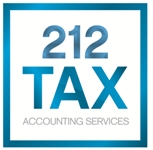If you pay interest on a single bank mortgage with a balance of $200,000 that is secured by your only residence, deductibility of interest on that mortgage is pretty clear. You’ll fill in the blanks in your tax return that the bank sent to you (usually Form 1098) and move to the next line on the return.
But for some home owners, mortgage is a bit more complicated. You may have a relative with a better credit rating who borrowed the money to purchase the residence, while you make the monthly payments to the bank. Or perhaps you purchased the residence with a loan from a relative, and you make the monthly payments to them. There may even be an instance where you and another person own a house together and you each pay a portion of the mortgage. These and many other situations require more analysis, and often some careful planning when it comes to preparing your taxes.
General Requirements for Deducting Mortgage Interest
When you itemize deductions, you can deduct interest paid on home mortgage loans, up to a certain limit based on your filing status. The collateral is your main or secondary residence.
It’s a simple principle, but there’s a lot packed into it.
The types of residences which qualify for deductibility include house, condo, mobile home, boat, or similar property as long as it has sleeping, cooking, and toilet facilities. The key factor in this situation is that the value of the secured ‘residence’ must satisfy the full mortgage. Also, you may only deduct interest on debt for which you are legally obligated, or for which you are the legal owner of the residence that is put up as collateral.
Careful Analysis and Plan
Request a Consultation
We are able to work with your unique schedule including after-hour appointments, most weeknights, and weekends.
Call to action
Build Growth Opportunities with Extensive Business Financial Services
We serve clients in a range of industries, including hospitality, nightlife, real estate, legal, and medical.


